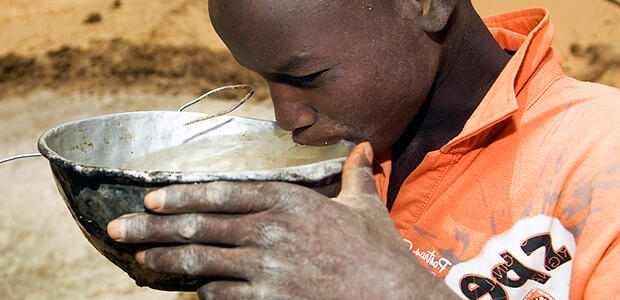Aid and the Social Sectors
Why Aid to the Social Sectors?
Aid to the social sectors, particularly health care and education, but also water and sanitation, and more recently social protection, is justified on the overwhelming evidence that links these fundamental factors to labour productivity, economic growth, poverty reduction, and ultimately human development. The research of ReCom – Research and Communication on Foreign Aid programme shows that development assistance has facilitated the investment in people in developing countries—an average annual inflow of US$25 aid per capita augments the average schooling by 0.4 years, boosts life expectancy by 1.3 years, and reduces infant mortality by 7 in every 1000 births.
An interactive ‘Results Meeting’
The ‘Results Meeting’ on the Social Sectors will bring together leading experts in social sector policy, alongside development professionals from bilateral and multilateral donor agencies, parliamentarians from Nordic countries, members of the international NGO community as well as policy makers from aid-supported developing countries.
The event is designed to reach out to the general public, and present and discuss ReCom research findings with regard to what works in foreign aid-supported social sector policy—what are the challenges to scaling up social policy beyond project aid; and what aid interventions have been, or could be successfully transferred across countries. Among the results to be discussed are:
What works in education aid and what can donors do to support these policies?
Enrolment rates in primary education have increased markedly in sub-Saharan Africa, from 58 to 76 per cent between 1999 and 2010. ReCom research finds that aid has contributed to that goal—an increase of education aid by 1% increases primary enrolment by about 0.06 percentage points. However, ReCom research also finds functionally illiterate and innumerate children completing primary education. The Results Meeting will provide insights into the policies that have proven to be effective in improving education quality, and how donors could support their scalability and transferability across countries.
What are the main challenges in water and sanitation, and health care policy?
Developing countries, with the support of donors, have made progress towards reducing under-five mortality rates, and tackling the burden of major infectious diseases—malaria-specific mortality rates have decreased by 25%, and the death rate from tuberculosis (25 per 100,000 population) has almost been reduced by half since 1990. Access to safe drinking water has also improved from 76% in 1990 to 89% in 2010, despite the fact that 2.5 billion people still lack access to sanitation facilities. However, progress towards improving child and maternal health care remains very limited. The number of maternal deaths per 100,000 live births in developing regions is still 15 times higher than in the developed regions. The Results Meeting will provide insights into the policies that are effective in improving ante-natal and post-natal maternal and child health care, and discuss the strategies that can be adopted to achieve the long term sustainability of these interventions beyond project aid.

Related papers
 Join the network
Join the network
